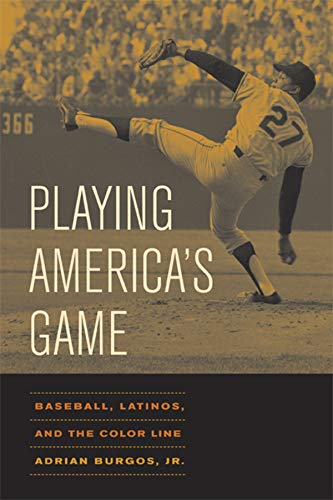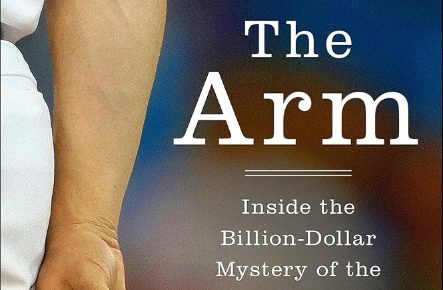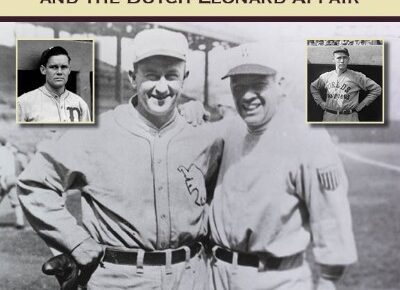When we talk about professional baseball and the idea of the color line that dominated Major League Baseball’s activities for so many years we are almost exclusively talking about black ballplayers. Specifically, African-American ballplayers. Most discussions of the Negro Leagues are centered on African-American ballplayers. The eventual breaking of the color line is once again the territory of African-Americans. What about the people of color who weren’t African-American?
That’s the question Adrian Burgos Jr. deftly tackles in Playing America’s Game. He starts at the very beginning, before MLB, and its then loosely affiliated organized baseball leagues, instituted a color line. He then digs into the color line and the role that Latinos and Native Americans played in dealing with that color line and breaking it many, many years before Jackie Robinson ever signed with the Brooklyn Dodgers. It’s an important look at the history of people of color within MLB’s stratosphere and it doesn’t leave Latino players, coaches, owners, and agents behind as is often the case with books about MLB’s color line.
The skill that Burgos wields as a historian is evident right from the very beginning. This isn’t a book for those who view Bill James’ conversational and anecdotal style of writing as the epitome of baseball history in action. Rather, Burgos shows off his chops by layering his book with more than just anecdotes, asides, and stat lines. He draws from a deep well of resources to adequately paint the picture of the history of MLB’s color line. This serves to add authority to Burgos’ words. He’s not one of us out there flailing away at our keyboards writing an editorial. Burgos is an honest to goodness historian who is using his ability to unpack historical events to convey those events to his reader.
The subject matter at hand needs such a touch. It’s not delicate per se, but it is nuanced and needs to pre presented as such. It’s also a welcome change of pace for someone telling the story of a major historical matter in baseball to not turn to white voices exclusively to form the basis for his tome. Burgos leans heavily on Latino players, coaches, fans, and fellow historians to impart the important role Latinos have played throughout the history of professional baseball.
It does help that I agreed with the major points that Burgos makes in Playing America’s Game. It’s hard to disagree with his points when he provides clear and concrete examples of the racism faced by Latino players right up alongside the evidence of their accomplishments that have largely been relegated to the dust bin of history by those who write about baseball. It took almost 240 pages for Burgos to present an argument that I disagreed with (he is a proponent of adding international youngsters to the MLB draft. As I don’t believe a draft should exist in any form I naturally disagreed with his opinion). Books aren’t about agreement, still, those who are more open and honest about MLB’s history of racism will appreciate the arguments, and candor used to make them, by Burgos in Playing America’s Game.
Ultimately though the strength of Playing America’s Game isn’t in the opinions Burgos presents but in the facts he uses to back up those opinions. It’s very easy to get mad at the way reporters treated, and continue to treat, Latino figures within baseball when the evidence of the racism they endured is presented right alongside their lofty accomplishments. When a book is heavy on facts but remains engaging that means an author has accomplished something special with their work.
Playing America’s Game should cause the reader to take a long hard look at the narrative MLB has tried to craft about the color line. Burgos’ historical reckoning should cause readers to prepare a space for Latinos within the history of the discrimination wrought by the color line and to recognize the Latinos who originally broke that color line. Playing America’s Game gives the reader a better appreciation for the important role Latinos have played throughout the history of baseball. For that, and many other reasons, it is a book that receives the highest of possible recommendations.
Lead photo courtesy of Unknown – University of California Press




